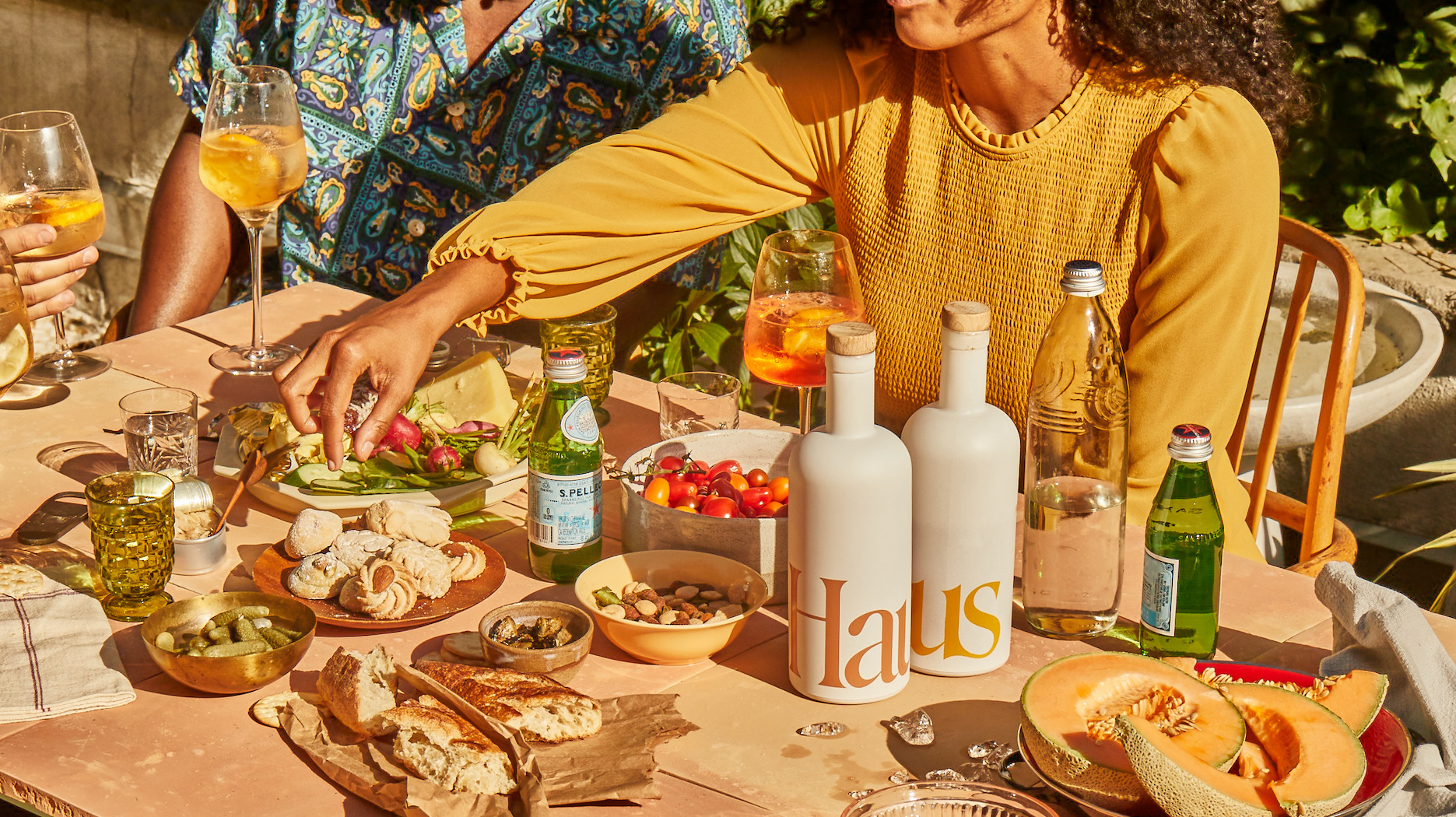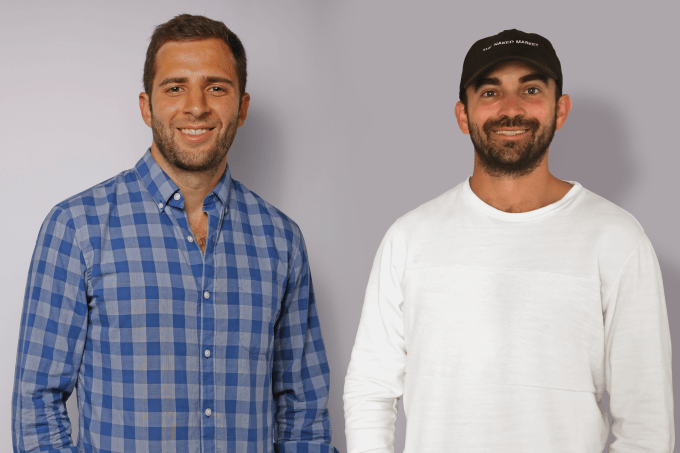Haus, an aperitif company that tried to find a buyer last year after investor funding dried up, now has one.
The Naked Market, founded by Harrison Fugman and Alex Kost, has acquired certain assets of the low-ABV (alcohol by volume) beverage company from CPG Holding Co. and is now relaunching a few of Haus’ customer favorites, including Citrus Flower, Pomegranate Rosemary and Grapefruit Jalapeño.
Helena Price Hambrecht and then-husband Woody Hambrecht, launched Haus in 2019, and it quickly grew a following with millennials looking for beverages with all-natural ingredients, fun flavors and direct-to-consumer delivery.
When asked about the sale, Price Hambrecht told TechCrunch via email, “I am very glad to see the brand live on. I will always be incredibly proud of what we built, and look forward to seeing what the new owners will do with it in this next chapter.”
Fugman and Kost told TechCrunch that they did not know the Hambrechts prior to the purchase. The opportunity to grab select consumer-facing assets of Haus, including the brand and the intellectual property, stemmed from their experience in the space owning brands like Rob’s Backstage Popcorn and Flock Foods, and their own history as Haus customers.
“Given our background as foodies and operators in the food and beverage world, we were admirers of the brand and business that Helena and Woody created,” Fugman said. “We viewed Haus as one of the most iconic brands that’s been built in the industry over the past decade. Very few brands had an impact on the industry and consumers.”
Though the global beverage market is huge, it’s also kind of a small world. Both Haus and The Naked Market share a mutual investor, Great Oaks Venture Capital, though Fugman noted the VC firm was not involved in the acquisition.
How Haus lost its buzz
By 2022, the company was seeing $10 million in revenue and had a national distribution deal. It also attracted venture investors, raising $17 million on rolling SAFE notes from a group that included Homebrew, Haystack Ventures, Coatue, Shrug Capital and Worklife Ventures.
However, Haus was not immune to pandemic-related challenges, including supply chain woes and word-of-mouth not growing as intended.
“It was difficult to build the business that I wanted to build during the pandemic considering we were building a social product,” Price Hambrecht told TechCrunch at the time. “We didn’t have people gathering, we didn’t have natural word of mouth. We were a purely digital growth brand during that time, great for acquisition but not good for monitoring long-term behavior.”
Price Hambrecht chronicled the company’s journey on Twitter, and in August, after additional investor capital didn’t come through, told followers that Haus would go through a process called Assignment for Benefit of Creditors, an alternative to bankruptcy, which is where assets are put into a trust for the purpose of liquidation or distribution to pay off debts. Any assets left over go back to the debtor.
In November, Price Hambrecht updated that the sale did not lead to a buyer, tweeting, “Today the banker running Haus’ sale process informed me that the auction has concluded, and the company did not sell. Candidly, I did not expect this. He said this was a surprise to him as much as it was to me.”

The Naked Market is relaunching Haus’ aperitif beverages. Image Credits: Melanie Riccardi
“Haus 2.0”
Meanwhile, financial terms of the Haus asset acquisition were not disclosed, however, an interesting part of the deal includes plans by The Naked Market to give 5% of the company back to previous Haus employees, founders and investors through a structured program. Usually it is investors that are prioritized, and Fugman and Kost said this move is meant to show appreciation to those who worked hard to build Haus.
“The Haus community was really one of the main pillars of the brand, and this is our homage to continuing that community,” Kost said in an interview. “We thought this was a gesture to help continue that spirit as we look into Haus 2.0.”
As part of that new chapter, Fugman and Kost brought in Sonoma winemaker Micah Wirth, whose LinkedIn profile said he had been Haus’ general manager since January, to continue leading winemaking and R&D efforts. The aperitifs will continue to be sold online, and future plans include taking Haus into new categories within the food and beverage space by the end of the year.
Fugman and Kost say they ultimately want to continue the community, product quality and transparency aspects that Haus began four years ago.
“We plan to take these core principles and build on them while continuing to scale Haus’ key hero SKUs and expanding them into a new category,” Fugman said. “We have unbelievable respect and admiration for the product that Helena created and have decided to bring that back to the market.”
After aperitif ambitions sour, Haus is back on virtual shelves via The Naked Market by Christine Hall originally published on TechCrunch

